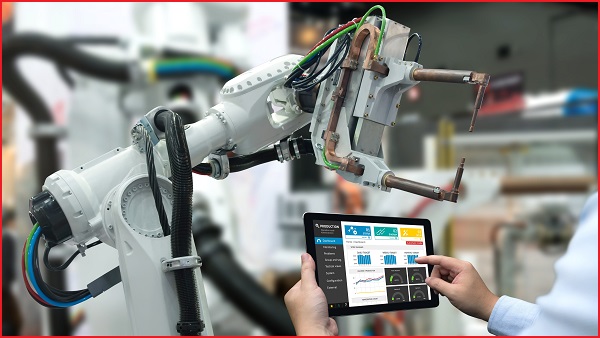Nearly three million Australian jobs could be lost to automation over the next 15 years, warns a new report prepared for ACS by AI data analytics company Faethm.
The Technology Impacts on the Australian Workforce report outlines the types of work most likely to be squeezed out as automation ramps up across different sectors of the economy.
Retail looks to suffer the most job losses with around 450,000 of the nation's 1.6 million workers in the sector facing automation – which is unsurprising given the current prevalence of self-serve checkouts and stores that track let you just walk out the door with your groceries.
Proportionally, Faethm’s modelling expects around a third of both the transport and administrative services industries could be automated by 2034.
No industry will be entirely unimpacted by technological advancement with most jobs and skills showing some level of technological augmentability – these jobs will be changed by technology but won’t be entirely automated. For example, only seven per cent of jobs in the education and training sectors are automatable but nearly 40 per cent are marked as being augmentable.
An 'unemployable underclass'
When launching the report on Wednesday morning, Labor MP Matt Thistlethwaite expressed his concern an underprepared workforce could suffer greatly from technological change.
“There is a serious risk of an unemployable underclass developing in Australia and inequality rising as a result of automation and artificial intelligence,” Thistlethwaite told the crowd of technologists at ACS’ offices in Sydney.
“Surely the goal of automation must be not only to generate economic benefits and improve efficiency and productivity but also to improve human outcomes and to improve living standards and equality in our country.”

[L-R] ACS CEO Andrew Johnson, Labor MP Matt Thistlethwaite, ACS President Ian Oppermann, and Faethm Chief Data Scientist Richard George holding the report on Wednesday morning's launch.
Thistlethwaite said education and reskilling will be invaluable, especially for sections of Australia’s workforce in the mid to late part of their working life who may have been in one job, with one skillset, for much of their working life.
“For people like that, retraining and dealing with automation is a huge challenge,” he said.
“And it’s a big challenge for government to make sure we get that right.”
The evolution of work
The Technology Impacts on the Australian Workforce report echoes other research into the future of work in Australia that indicate a rapidly changing landscape that could cause wide-scale unemployment if large swathes of workers are caught unawares.
If adequately addressed, however, automation can provide opportunities for Australia’s economy with the report showing a potential gain of 5.3 million new jobs by the middle of the next decade.
Faethm’s chief data scientist, Richard George, said the way to look at the data was through the lens of ‘the evolution of work’.
“Every task we do now is slowly changing,” George said. “So we’re going to start seeing the reduction in those routine, monotonous tasks that we do and an increase in the more human things that we do – the communication, the presentations, and the more complex analysis in our jobs.
“We need to stop thinking about the ‘end of work’ and the ‘future of work’ because it’s happening now and we’re evolving.”










